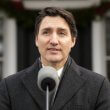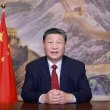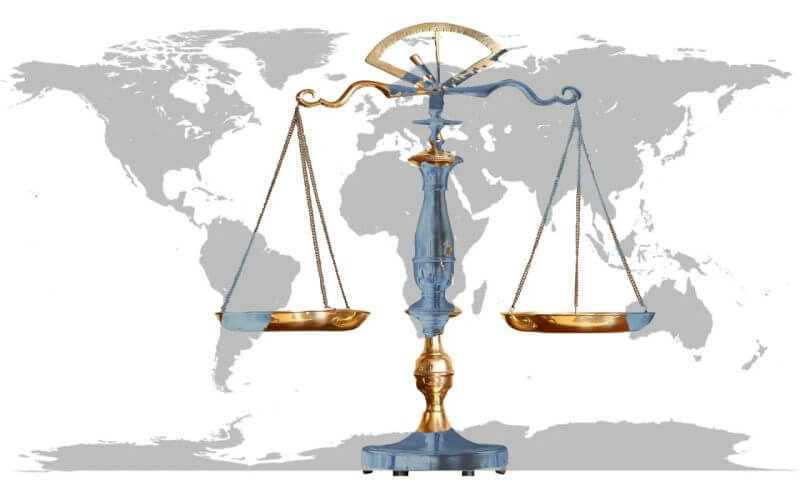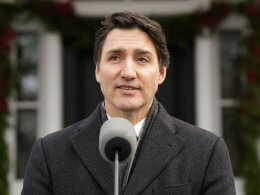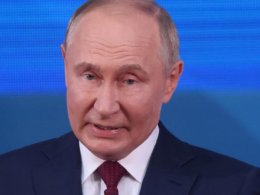This past week, Russia issued an arrest warrant for International Criminal Court (ICC) prosecutor Karim Khan. A Russian-owned news agency, TASS, reported that Khan was added to Russia's Interior Ministry's wanted list. This follows Moscow's cases against Khan and three ICC judges launched shortly after Putin's arrest warrant over war crimes allegations was issued in March.
In light of these recent events, here are five reasons why Russia’s invasion of Ukraine and its ensuing war crimes are clear violations of international law:
1. Violation of Article 2(4) of the United Nations Charter and the Recourse to Force:
Under Article 2(4), the United Nations Charter enshrines a general proscription against the threat or use of force in international relations which safeguards the territorial integrity and political independence of all states. As such, it outlaws not just war, but also any use of force that falls short of war, such as reprisals, which could be inconsistent with the United Nations objectives.
However, the U.N. Charter outlines two exceptions to this rule. Article 51 acknowledges the inherent right of individual or collective self-defense if an armed attack occurs against a member of the United Nations. Chapter VII, Article 39, allows for the use of force to be authorized by the Security Council in situations deemed threats to peace, breaches of the peace, or acts of aggression, which is in accordance with Articles 41 and 42 of the Charter.
Nonetheless, Russia’s invasion of Ukraine and its subsequent war crimes do not qualify under either of these exceptions, despite complications arising from Russia’s permanent member status on the Security Council. Ukraine’s sovereignty and territorial integrity has been violated since Russia’s military occupation of Crimea in 2014.
Furthermore, Russia’s interest, and ensuing invasion of Ukraine stems from irredentist claims that Ukraine is still a part of “Mother Russia.” None of these reasons and actions stem from a clear and imminent threat to Russia’s territorial integrity or political independence under Article 2(4)—if anything, Russia’ actions give international legal credence and justification to Ukraine’s military self-defense under Article 51 of the Charter.
Russia, although a member of the P5, did not seek authorization from the rest of its Security Council members for its invasion of Ukraine, probably due to the nation’s knowledge that its actions were not in compliance with the bases of the U.N. Charter and the laws relating to recourse to force.
There is almost unanimous agreement that the U.N. Charter document has passed through customary international law and that violations of the Charter were thus violations of international law. Specifically, there is widespread and representative recognition of Article 2(4) and its two exceptions as peremptory norms of general international law amongst the international community. As of 2022, 143 countries have condemned Russia’s invasion of Ukraine as a violation of sovereignty. State practice and General Assembly resolutions, while not legally binding, are an important indication that the Charter must be adhered to and are thus binding for Russia.
Considering the Charter and its obligations are internationally legally binding for all members of the United Nations, including Russia—one of the founding member states—it is important to look at the intent of the Charter framers. There seem to be two main intentions envisioned by the Charter Framers in 1945. Considering the document was drafted as a response to World War II, particularly resulting from the crimes against humanity against European Jews by the Nazi Regime, the framers’ intentions can be seen in the U.N. Charter Preamble, which reaffirms fundamental human rights and denounces war. In short, the Charter Framers envisioned the document to restrict acts of aggression that could escalate to war and to safeguard the basic principles of humanity and human rights. As will be explained in the subsequent four points, it is evident that Russia has undermined all four of the Preamble’s goals from its invasion of Ukraine.
2. Violation of Crimes Against Humanity Under the Rome Statute:
Vladimir Putin’s, as well as Russia’s Commissioner of Children’s Rights Maria Lvova-Belova’s illegal deportation of children in Ukraine is a crime against humanity under the Rome Statute, and the reason for their arrest warrants by the ICC back this March. Under Article 8(2)(a)(vii), the International Criminal Court has jurisdiction over war crimes committed, specifically regarding unlawful deportations, transfer, and confinements. For the purposes of the Statute, “war crimes” constitute grave breaches of the Geneva Conventions in 1949.
It is clear Putin and Lvova-Belova committed this crime, but complications arise out of immunity from jurisdiction given to current and former heads of state, which is widely recognized as a doctrine of customary international law. Russian legal authorities may argue that criminal acts committed by current heads of state are simply due to the “nature or position of the relevant person,” as supported by the recent immunity given to the Head of the Saudi Arabian government, Muhammad bin Salman, for the murder of Jamal Khashoggi.
However, there have been past cases in which heads of state could not escape immunity from crimes against humanity. Regina v. Bartle (1999) was a landmark case which served as a warning to authoritarian dictators that abused the vagueness of international legal obligations. In the case, the court ruled that Augusto Pinochet, former Chilean head of state that conspired to take hostage, torture and murder Spanish citizens, could not receive diplomatic immunity for his war crimes.
Since torture is a universally prohibited act, all nations can exercise universal jurisdiction over it, irrespective of where they occur. As a result, Putin and Lvova-Belova are technically safe from universal prescriptive and enforcement jurisdiction from any country that seeks to extradite them as long as they stay in Russia or in countries they know will not seek jurisdiction for their crimes.
3. Violation of the Hague and Geneva Conventions on International Humanitarian Law:
Russia has also violated international humanitarian law under the Hague IV Convention of 1907 and 1949 Geneva Conventions. The Legality of the Threat or Use of Nuclear Weapons (1996) case stipulated two cardinal principles of international humanitarian law: 1) The protection of civilian populations and civilian objects, and 2) a distinction between military combatants and noncombatants. The court also added to the latter statement the prohibition of causing unnecessary suffering to combatants.
This case is in accordance with and reflective of Hague and Geneva law, which outlines a list of certain persons and objects that may never be attacked during an armed conflict or war. Some of these persons or objects include civilians, neutral states and persons, the Red Cross, medical and religious personnel, the wounded and sick, expectant mothers, civilian hospitals and hospital ships, lifeboats and cultural property.
Russia has attacked innocent civilians during its invasion and ongoing war with Ukraine, whether directly or as a result of disproportionate use of weapons and violence, breaking both cardinal rules of the law relating to conduct of hostilities.
While international humanitarian law requires discrimination between combatants and noncombatants, Russia vehemently refuses to do so. According to the Human Rights Watch, Russian forces have carried out indiscriminate attacks on civilian areas and targeted energy infrastructure, leaving citizens in Ukraine without electricity, water and heat. Ultimately, these attacks on illegitimate targets have caused widespread and unnecessary suffering; while the principle of military necessity allows for the use of force, including the use of deadly force, the goal is not to kill, but to incapacitate military targets so that they are no longer a threat.
Russia has also violated the Geneva Convention on Prisoners of War, specifically violating clauses on humane treatment, captor’s responsibility, personal belongings and rules on disciplinary measures.
According to the Human Rights Watch, civilians have reportedly faced a range of human rights abuses at the hands of Russian forces, including instances of murder, unwarranted detentions, torture and forced disappearances. Ukrainian prisoners said they were subjected to beatings, electric shocks, staged executions and waterboarding; some were also held captive in substandard conditions within basements, pits, boiler rooms and industrial sites.
The United Nations documented 86 instances of sexual violence from February to October 2022. The majority of these acts, including rape, group rape, enforced nudity and compelled public disrobing were allegedly perpetrated by Russian forces across various Ukrainian regions and within a detention facility in Russia. In short, Russia is torturing its prisoners of war, a clear war crime and violation of customary international law.
4. Violation of pacta sunt servanda:
The recent incursion into Ukraine has drawn significant attention to Russia's breach of pacta sunt servanda, the Latin phrase for “agreements must be kept,” and underscores the obligation of states to fulfill their treaty obligations in good faith. Violation of this principle undermines the bedrock of international relations—as it is arguably one of the oldest foundations of international law—and erodes the trust necessary for peaceful cooperation among nations. Russia has done so in three of its international agreements.
Helsinki Final Act (1975)
As a successor state to the USSR, Russia inherited the commitments made by the USSR, including the pledge to respect the territorial integrity of other signatory states and refrain from the use of force. Russia’s invasion of Ukraine, a fellow successor state to the USSR, is clearly a violation of this pledge and a breach of treaty law and also a violation of Article 2(4) of the Charter.
Budapest Memorandum (1994)
In this international agreement with the U.S. and the United Kingdom, Russia promised to respect the independence, sovereignty and existing borders of Ukraine. Russia's military actions against Ukraine could be perceived as a disregard for these commitments and a violation of the long-standing principle of agreements.
Minsk Agreements (2014)
Ratified by Russia and Ukraine, the agreement intended to resolve the conflict that began after the annexation of Crimea in 2014. These agreements, which include ceasefire accords, aimed to ensure stability and peace in the region. Any military aggression that contradicts the spirit of these accords, like the recent invasion, could be seen as another violation of pacta sunt servanda.
5. Violation of jus cogens:
Jus cogens, or peremptory norms of international law, are norms that are so fundamental that derogation from them can never be allowed. Older than international law itself, jus cogens norms exist above the will of all states and found itself ingrained into positive international law within Articles 53 and 64 of the Vienna Convention on the Law of Treaties.
Jus cogens laws prohibit slavery and the slave trade, aggression, genocide, crimes against humanity, torture or other cruel, inhumane or degrading treatment, basic rules of international humanitarian law, prevention of self-determination, piracy and apartheid.
From Russia’s four other violations of international law above, it is clear that there are some overlapping violations with jus cogens law, specifically Russia’s war of aggression, torture of prisoners of war, violation of international humanitarian law and violation of Ukraine’s self-determination.




